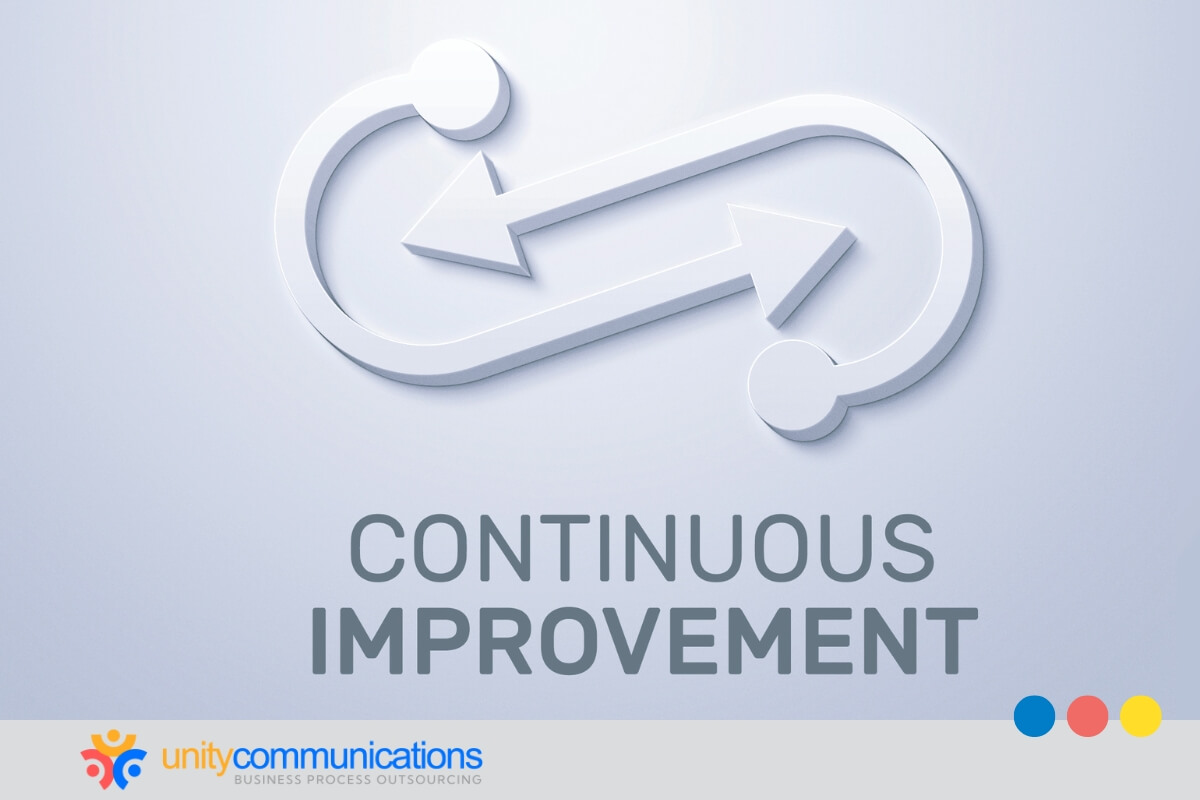Table of Contents
Global capability centers (GCCs) give enterprises a more innovative way to run operations with speed, consistency, and control. These company-owned hubs internalize services typically handled through business process outsourcing (BPO) providers, offering long-term strategic value across key functions.
However, building GCCs for scalable outsourcing becomes necessary as your company’s needs evolve. How do you achieve it?
This article discusses what it takes to build impactful GCCs. Keep reading to learn how to structure, scale, and strengthen your setup.
1. Define strategic goals when building GCCs for scalable outsourcing

The Boston Consulting Group reports that over 70% of companies have embraced GCCs. This indicates a widespread shift toward models that support business continuity, internal expertise, and faster responses compared to traditional outsourcing.
However, clarifying what BPO is should be a starting point before setting up a GCC. BPO involves delegating non-core functions to service providers, including finance, information technology (IT) support, or customer service. GCCs internalize these functions in company-run centers for better control, tighter integration, and long-term strategic value.
With this distinction in mind, set your strategic goals early to align your GCC’s purpose with business priorities. These objectives will shape the model’s structure, growth plans, and ability to support cost control and consistent service delivery.
Aligning your GCC with corporate direction also delivers measurable value through:
- Purpose-built infrastructure
- Integrated delivery models
- Targeted cost optimization
Clarity from the start drives quantifiable impact. It amplifies efficiency, resilience, and strategic advantage over time.
2. Choose the optimal location for scalability
Your GCC’s location directly affects growth, performance, and access to global talent. Choose an area with a large, skilled talent pool, strong infrastructure, and competitive operating costs to quickly scale the model when needed.
Building GCCs for scalable outsourcing also depends on geopolitical stability, tax incentives, and workforce availability. India, for example, hosts over 1,600 GCCs, 65% backed by U.S. firms. This highlights long-standing confidence in the country’s delivery capacity and access to specialized expertise.
To support long-term growth, assess how a location contributes to:
- Consistent service delivery and output
- Regulatory compliance and data security
- Regional cost–saving potential
Sites known for long-term operational efficiencies and resilient infrastructure help you move faster and respond in real time. They can support business expansions and strengthen your competitive advantages.
3. Build robust physical and digital infrastructure
Strong infrastructure is the backbone of every successful GCC. You need reliable facilities that scale with demand and protect sensitive information. Modern premises, physical access controls, and secure networks support efficient operations and long-term risk management.
Your digital setup is equally critical. Establish cloud-first environments with centralized IT support, automation tools, and encrypted systems. These elements secure data and increase resilience across teams.
To support growth, infrastructure must offer agility, resilience, and capacity. Concentrate on:
- High-speed connectivity and redundant systems
- Centralized platforms for data analytics
- Scalable tech stacks aligned with user needs
These capabilities fuel digital transformation and long-term operational strength. As you develop your GCC to support long-term scalability, align your infrastructure with functional and business goals. This setup positions your organization to drive innovation at scale and sustain a competitive edge.
4. Attract and retain top global talent
A survey showed that over 72% of business leaders and executives in India view talent management as a top priority. As a prime destination for GCCs, the country provides access to diverse, qualified professionals. Many organizations count on India’s rich talent pools and specialized skills to meet their needs.
Drawing skilled employees is vital when building a scalable GCC. Their skills help improve processes, boost quality, and grow the business faster. To keep your center competitive, create programs that support employee development, including:
- Continuous learning opportunities
- Clear career progression paths
- Flexible work arrangements
GCCs offer an opportunity to blend local expertise with global standards, helping retention and performance. They also boost cost efficiency by reducing recruitment costs and increasing productivity.
5. Implement scalable processes

As you focus on building GCCs for scalable outsourcing, repeatable workflows become essential. You want processes that run smoothly across functions while maintaining quality. When your GCC grows, weak workflows slow output. Strong systems keep performance steady.
Design with simplicity and clarity. Start by mapping core business functions. Then, define inputs, outputs, roles, and dependencies. Document your workflows with standard operating procedures that leave no room for misinterpretation. This reduces ramp-up time and error rates when new employees join.
Automate workflow tools, ticketing systems, and centralized dashboards to support consistency. This strategy reduces manual handoffs and helps teams operate with fewer mistakes.
Standardized governance also matters. Use these to maintain control:
- Regular audit checkpoints
- Cross-functional process owners
- Uniform metrics and escalation paths
Strategic outsourcing can deliver consistent value with the right processes even as complexity increases.
6. Integrate automation and advanced technologies
Incorporating automation and digital tools early helps reduce manual effort, cut delays, and keep your GCC agile. When you embed these capabilities, you build more intelligent systems that scale with you. They also enhance accuracy, collaboration, and control over complex operations.
To embed innovation into daily workflows, invest in:
- Artificial intelligence (AI)-powered document processing
- Automated data cleansing and validation
- Workflow bots for recurring tasks
- Intelligent scheduling and resource allocation
With these tools in place, your teams can focus on higher-value initiatives, while your GCC is leaner, more innovative, and more efficient.
7. Lay the groundwork for governance and compliance
When building GCCs for scalable outsourcing, create a foundation that protects your business. This starts with governance, compliance, and data controls.
Governance goes beyond documentation. Transparent policies around data use, security, financial oversight, and employee conduct guide daily decisions while reducing legal risks. Compliance helps manage sensitive data across jurisdictions, while strong controls allow your GCC to meet different regulations.
Build a framework with these governance tools using the following:
- Data privacy policies by location
- Internal audit and escalation procedures
- Risk scoring and prioritization models
- Legal reviews and compliance calendars
When done right, governance becomes a system that supports scale, not a barrier to growth.
8. Design cost-efficient, high-impact GCC models
When building GCCs for scalable outsourcing, you should shape a model that supports growth without inflating costs.
Find out which parts of the business the GCC will support and set budgets based on clear goals. Instead of hiring too many people, combine or change roles to do more with less. To maintain impact while controlling spending, rely on:
- Shared service layers across multiple functions
- Centralized procurement and vendor consolidation
- Performance-based budgeting with return benchmarks
- Hybrid staffing models with a contract and full-time mix
Each element helps stretch value across the enterprise. When you build lean, intentional operating models, your GCC becomes a force multiplier rather than a fixed cost center.
9. Plan for growth
Scalable GCCs require an organization that can adapt quickly to new functions, regions, and regulations. Flexible frameworks help you handle growth without reengineering every stage.
For example, India remains one of the largest GCC hubs. However, Vietnam, Malaysia, and the Philippines are emerging destinations for IT, customer operations, and finance support. Weigh these markets when projecting needs.
Prioritize agile systems and models, such as:
- Modular org structures that extend across functions
- Interoperable tech platforms
- Cross-regional delivery frameworks
Establishing GCCs with scalability in mind ensures your operations can expand without costly delays or disruptions. You can seize opportunities, enter new markets faster, and maintain service quality as you grow.
10. Embed agility from the start

Building GCCs for scalable outsourcing also means being agile to stay ahead. To reinforce flexibility, prioritize systems that can adapt without breaking down or requiring major rework. Think of your GCC as a living structure, ready to pivot quickly as needs change and new priorities arise.
Key elements to embed agility include:
- Modular team structures that can reconfigure quickly and scale on demand
- Scalable technology platforms supporting rapid upgrades
- Processes designed for continuous improvement
- Clear communication channels across regions
- Robust data analytics to anticipate trends and guide decisions
This approach lets your GCC respond to new challenges while keeping operations smooth and efficient.
The bottom line
Do you want better results from your global operations with smarter, future-ready support? GCCs give your business structure, speed, and control to grow without friction. The proper GCC setup powers consistent delivery across borders, from cost efficiency to talent access.
Let’s connect and explore how a high-impact GCC strategy can give your enterprise the competitive edge.




